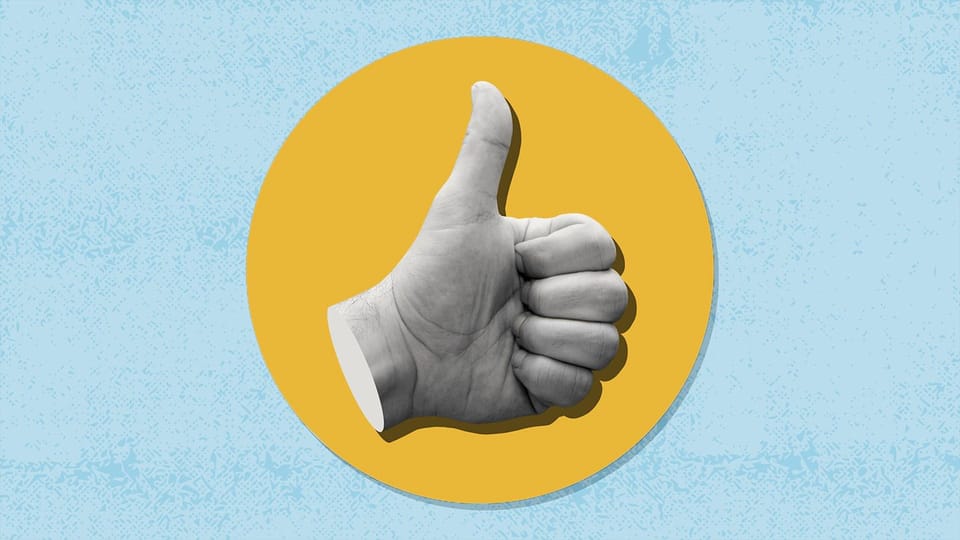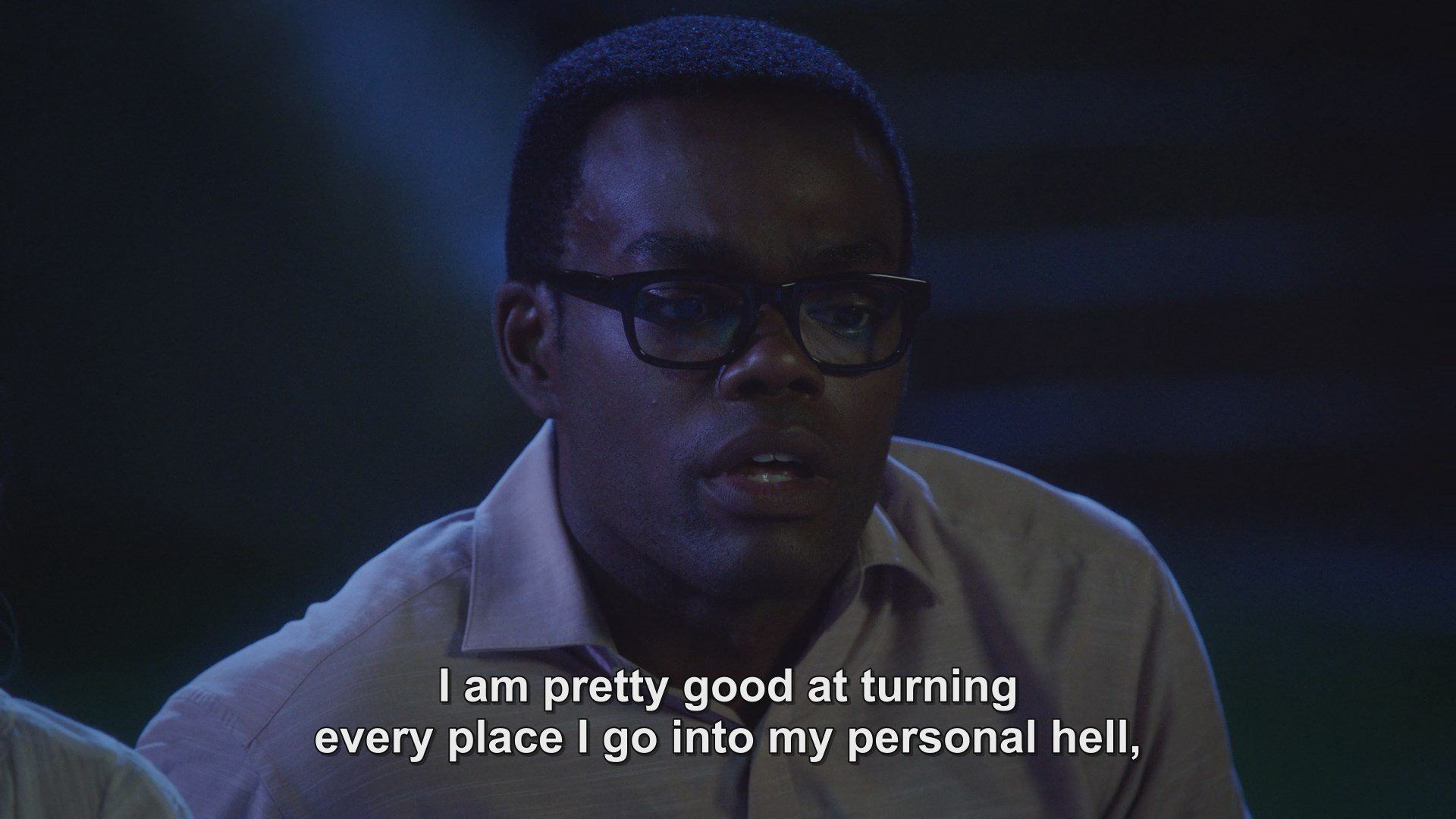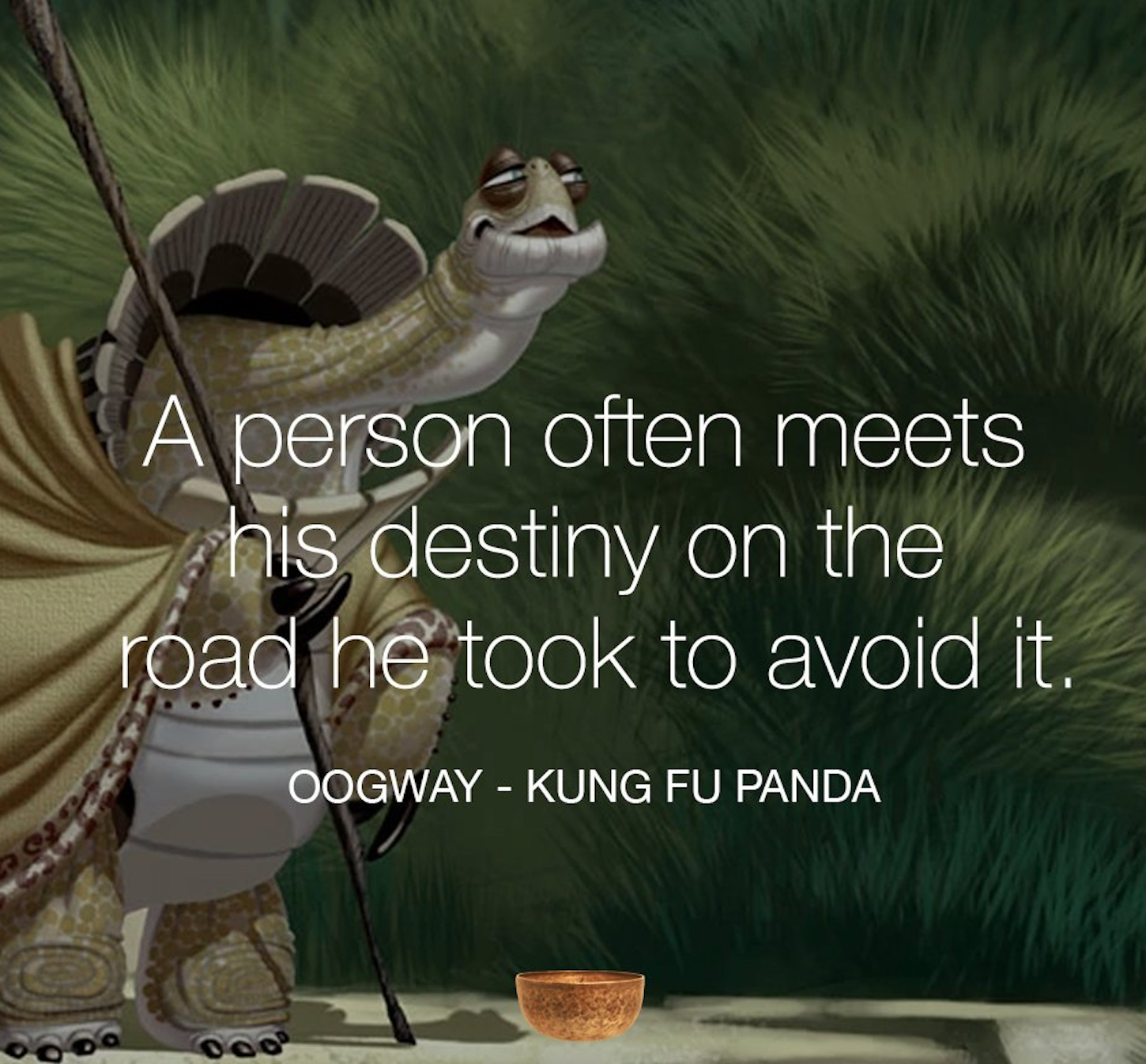Learning To Be More Optimistic

Table of Contents
- An Exhausting Existence
- The Turning Point and the Secret Spice
- Challenging the thoughts
- Too long; Didn't read - The Summary
An Exhausting Existence
We all have been faced with the age-old, is the glass half full or half empty question. If you see the glass as half full you have a more positive view of life, similarly, if you see the glass as half empty you have a more negative perspective. Everyone wants to believe that they are optimistic, so they suggest that they see the glass as half full. The real-life truth is different. I am one of those people.
I had always considered myself to be a "Glass half full" type of person. I am a trustworthy person, I tend to see the good in other people, and am generally in a good mood. That makes me an optimist, right? Nope!
Over the past few months, I have spent more time journaling and meditating and have really started to take a look at my thought patterns, and they are definitely not "glass half-full". They are more so "the glass is half empty af, how dare you, get me the manager" type of negative. (ok yah, a bit of an exaggeration for the joke, but you get what I mean)
I have always been an anxious person, and for the longest time, I just assumed that's how humans were made to think. Find the problems, so you know what to solve. This made me a fairly good problem solver, I excelled in activities where I had to find problems and think of solutions. Ironically, not seeing the glaringly problematic, and pessimistic, thought pattern I was stuck in.
This made me a good student, TA, and chapter president. I worked on finding the weaknesses before they became too large, and would find solutions to fix them. Seems like a good thing, but the devil is in the details.
In the grand scheme of things, what gets left out is the consistent overthinking and the pain-staking hours spent looking for and finding problems in situations that are inherently unproblematic. Essentially, I got very good at making a personal hell of my own surroundings. This quote from "The Good Place" sums it up very well.

When good things would happen I would see the situation as a fluke, or something horrible in disguise. My defenses would go up. My brain would start finding and solving 100 different negative made-up scenarios which would never end up happening. As mentally exhausting as this would be, for each hypothetical situation that I found a solution for, I would get a rush of dopamine. It's like when you pick at a scab rather than letting it heal. You know it's better to leave it alone, but you still keep picking at it.
How can you possibly appreciate a good thing when you just find ways that things can hurt you. Often it turns into a self-fulfilling prophecy. I did things to avoid the hypothetical scenarios, and they would still end up happening. Maybe next time, I can find the problem sooner and solve it quicker; yah that's not how it works.
This existence became exhausting.

The Turning Point and the Secret Spice
It was moving to New Jersey that served as the catalyst to change for me. Leaving Detroit, my friends, and the best job behind took a toll on me. I was at a very low point and I was incredibly pessimistic about the situation. I have moved around from place to place so often in my life that I had a hard time getting a solid footing in one place. It had happened again, and I was pissed. While I was happy to be with my parents, it was a struggle moving away from friends. I imagined myself gaining weight, not having a job, no friends, and no future. My mindset was very glass half empty.
Coincidentally around the time I moved, I had decided to start meditating and journaling consistently. This was the secret spice that helped me see these negative thoughts as they passed through my mind. Before meditating and journaling, rather than noticing and working through these thoughts, I lived through them and accepted them as my reality.
Your thoughts become your reality, and my thoughts were hell. On the plane ride to NJ, I decided to see this move as an opportunity to grow.
I know, I know, super freaking cheesy Karan, but stay with me. It only gets cheesier. :p
“The mind is its own place, and in itself can make a heaven of hell, a hell of heaven..” - John Milton
Challenging The Thoughts
To begin to challenge these negative, pessimistic, thoughts; you first need to identify them. This begins with two tools that I have mentioned before: Meditation and Journaling. Meditation helps you slow down and observe your thought patterns, and journaling about them helps you see them in writing. It's weird, you may think you know your thoughts pretty well, but then you write them down and you catch things you hadn't seen before. I noticed how most of my thoughts were created by, what I like to call, my disaster artist brain. Getting a job, making a new friend, eating good food, all those scenarios were written and directed in my mind by the disaster artist. He would paint each situation in a negative color.
"I only got the job because they were desperate, they definitely don't like me and I will fail"
"This person is just acting friendly, why would they want me as a friend. I bet they are judging me for how I talk"
Nothing constructive, or real was ever thought about. Meditation and journaling really helped me identify these.
The Questioning
Every time I was faced with pessimism I would ask myself a few things. Tools I got from the book "Learned Optimism" by Martin Seligman
1) Is this going to continue forever or is it just temporary?
The pessimistic outlook sees bad things as permanent. The mind will opt to believe that pain from rejection will last forever. That the person is just destined to fail at everything that they try because that's what their past shows. Either everything has to work out, or nothing ever will. This all-or-nothing mindset breeds dissatisfaction and results in an unwillingness to see the brighter side of life. Successes will be seen as flukes, while failures will seem like the norm.
To fight the urge of falling into this hole of self-pity, it's important to see each situation as an individual occurrence. The failures, and even the failures, while they may hold significance are temporary. Everything comes to pass. That may seem like a very bleak perspective, but I don't think that it is. Knowing that all things come to pass will make you appreciate your situation more and become more present. It allows you to truly appreciate the wins, and feel the lows of the losses. While at the same time reminding you that you shouldn't paint your life in the color of that moment. Just because you feel blue right now, your entire life isn't on the low.
In the words of philosopher John Mayer: "It's just a wave"
2) Is this who I am, or is this just a situation?
As a pessimist, when you start attaching your identity to certain situations you are going down a tricky road. If you have been succeeding, then go ahead and attach your identity to that success; see yourself as a winner. However, most of us, especially the glass-half-empty folk, tend to only tie our life stories to the losses and less so the wins.
cheese warning
You are a collection of your wins and losses, not one or the other. When you are feeling down and start reminding yourself of past failures, whether that is in school, career, or relationships, prevent yourself from falling into the trap of self-victimization.
Put on your shoes, take with you a little journal, and ponder on past times when you have won. Write them down as you go. If you find this hard to do, then you need to do this more than you think. You are focusing too much on the negative.
3) Where does the control lie?
Are you in control, or is everything out of your hands? Are you the one steering the ship, or are you just setting sail on someone else's voyage?
Individuals who have a pessimistic mindset often feel helpless because they see the world being out of their control. They have an external locus of control, where the bearer of control lies outside of themselves. How can a person believe things can change for the better when they don't think they are the one in control. This is a myth. The harsh, and liberating, truth is that you are always in control.
Someone else seems to be controlling your life, paying for you, feeding you, and not allowing you to do what you want. The easy way to look at this is to assume you will never get what you want. It may be tough, but you can learn to earn money, feed yourself, and break away to do what you want. If you believe you can make the change, then you will. You need to work on developing an internal locus of control. Learn new skills, get uncomfortable and try new things. You may, and often will fail. That may seem scary, but in that failure or success, you will see that you are the one in control. So work on that passion project. Learn the new instrument. Figure out how to become financially free. In trying and failing, the locus of control shifts from outside of you, to within you.
If it's to be, it's up to me - William Johnsen
Too Long Didn't Read
Okay, a quick summary.
You either see life from an optimistic or a pessimistic view. Your past experiences will shape your viewpoint. You will know you are a pessimistic individual when you find problems where there are none. When you feel anxious despite things going well. You mistrust people and see successes as flukes and failure as your norm. It's a slippery slope to a life full of dissatisfaction and not being grateful for what you have.
To identify these thoughts and see why they are there in the first place, meditate and journal. See the pattern that your brain assumes that sees the bad in the good. What triggers you? What is the way in which you are seeing this situation that is making you weary and suspicious?
Pessimists often feel helpless, and when things go bad their resulting view has 3 critical parts to it. 1) The negative experience will be one that lasts forever, therefore they will always dwell on it. 2) They define themselves by these defeats. 3) They don't believe they are in control.
Challenge these thoughts by asking yourself these questions. 1) Is this really going to last forever, or is this a temporary feeling (it's almost always temporary)? 2) Does this failure really define me? If you said yes, then take a piece of paper and write down every success you have had, and when things worked out for you. No matter how small. 3) Who is really in control? Your mind will find ways to tell you that someone else is, therefore, your pessimism, and self-victimization are justified. Harsh truth: you are always in control. Take action, fail over and over, learn from experiences, and you will see life being more in your control.
I am by no means, and I will never pretend to be, a perfect person. I still tend to have a pessimistic viewpoint. I am getting better, and these are just the lessons I have learned along the way. To be completely frank, I just want to share these to maybe help another person, if not another person than me in the future.
Appreciate you taking the time to read this, you glorious bastard <3
Until next time.